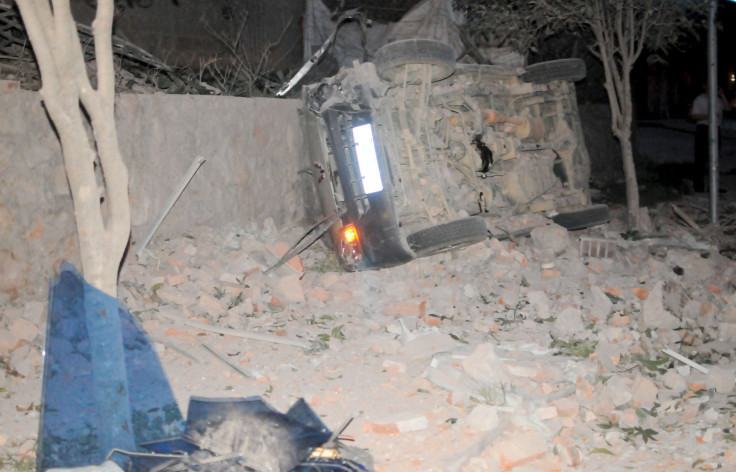China Explosions: Parcel Bombs Kill 7, Injure Over 50 In Guangxi Zhuang Autonomous Region

Update as of 00:23 a.m. EDT: Chinese police have arrested a suspect in connection with a series of parcel bombs that the city of Liucheng in the country's Guangxi province, state media reported Thursday. Earlier reports suggested that authorities had identified a 33-year-old man in connection with the blasts, but until now there had not been official confirmation of his arrest. The man was identified only by his last name, Wei.
In addition, Chinese media also reported Thursday that, following reports of yet another blast in the city, that parcel delivery services in Liucheng had been temporarily suspended.
Update as of 11:01 p.m. EDT: China's state-run CCTV news reported Thursday that a fresh blast had shaken the city of Liucheng in the country's Guangxi province, where a series of bomb attacks killed at least 7 people yesterday. The report made no mention of further casualties.
The latest blast hit a civilian's house near a highway administration bureau in Liucheng, according to the official Xinhua news agency. Many of the 17 packages that detonated throughout the region Wednesday had been sent to municipal buildings.
Original story below. This is a developing story. Check back for further updates
A series of explosions in southwest China’s Guangxi Zhuang autonomous region killed at least seven people Wednesday and left dozens injured, according to reports. The blasts were reportedly caused by parcel bombs, which were delivered to a number of municipal buildings in the area.
Chinese state media reported that authorities had ruled out terrorism as a motive for the blasts, with police describing them as “criminal” acts. Xinhua News Agency reported that police have identified a 33-year-old man, surnamed Wei, as being responsible for the blasts. Some outlets reported he was in custody, but there has not been official confirmation. Police added that the investigation into the blasts was ongoing, but gave no further information.
Images shared on Chinese social media showed damaged and partially collapsed buildings as well as bloodied, injured people lying in the street. Overturned vehicles also were seen in the apparent aftermath of explosions. The blasts left 51 people injured, with two people unaccounted for, authorities said.
There were 17 blasts in all. Authorities said they identified 60 further suspicious packages that were being examined by bomb technicians.
"I was sitting in my shop when I heard a sudden loud bang. I was in shock. ... My hair was flying in the air from the shock waves," Li Acheng, 30, owner of a fruit store close to one of the blasts, told the South China Morning Post. "Some windows in my shop broke. I walked outside to see what had happened and was almost hit by a falling window from the third floor. I saw half of a building nearby collapse.
"We were all very shocked and thought it might be an act of terrorism. All shops were closed and the town is under curfew with police guarding every street. … It was very scary with so many attacks in just over an hour."
The blasts struck as China prepared for its National Day holiday, celebrating the 66th anniversary of the founding of the People's Republic of China. Security in many large Chinese cities has been tightened ahead of the holiday period.
While bombings occasionally happen in China, this latest incident was unusual in that it appeared to be more coordinated that previous attacks. Some Chinese Internet users have expressed skepticism that the blasts could be the work of a single individual, despite what authorities have said.
© Copyright IBTimes 2024. All rights reserved.












